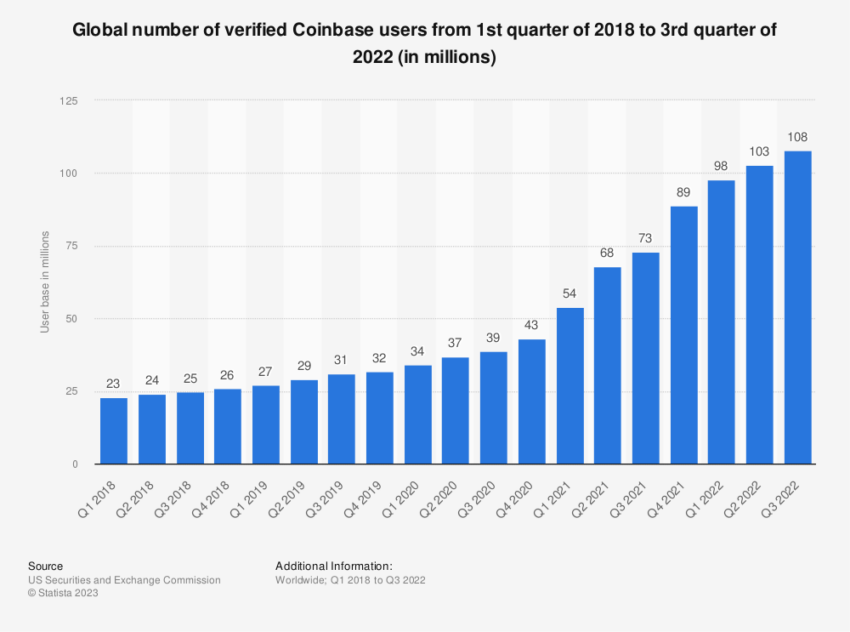In a landmark ruling that could ripple through the crypto market, the judiciary has backed the Internal Revenue Service’s (IRS) power to procure personal data from Coinbase. This decision spotlighted the stringent authority the IRS commands in its pursuit of tax compliance.
It is a striking tale of the powerplay with the IRS emerging victorious against a crypto user’s privacy infringement claims.
IRS’s Powers Affirmed in Coinbase User Data Controversy
In a court session, District Court Judge Joseph N. Laplante dismissed the objections presented by James Harper, who argued against the IRS’s seizure of his personal data.
Laplante upheld that the IRS’s methods, including obtaining personal data through a summons, did not encroach on Harper’s rights to a fair hearing or protection from unreasonable searches and seizures. This reaffirmed the broad mandate that the IRS holds, allowing it to release summonses in a wide range of circumstances.
An interesting aspect of the case was Harper’s argument. He affirmed that his privacy rights were violated, which found little support in interpreting the Fourth Amendment.
If you’re concerned about preserving your privacy rights while trading cryptocurrencies, consider exploring our guide on the ‘7 Best Bitcoin ATMs With Low Fees and High Privacy‘
Judge Laplante noted that Harper had willingly disclosed his information to Coinbase. Moreover, the firm’s privacy policy warned of potential government requisitions. This considerably undermined Harper’s position, as disclosing information to Coinbase was voluntary.
Furthermore, Laplante dismissed Harper’s assertion of violating his Fifth Amendment rights, indicating sufficient opportunities to contest or restrict the summons.
Harper’s Struggle Against the IRS: A Legal Roller Coaster
Harper’s decade-long relationship with Coinbase started in 2013, with his depositing Bitcoin earnings from consultation services.
In 2016, the IRS, eager to maintain transparency and adherence to guidelines in the crypto market, sought information from Coinbase through a John Doe summons, targeting unknown taxpayers.
Coinbase initially resisted this summons, resulting in a second legal pursuit by the IRS to ensure compliance. This initiated a prolonged legal skirmish, eventually leading to Coinbase surrendering the necessary documents to the IRS.

Harper retaliated in 2018 with his lawsuit, raising numerous constitutional issues and calling for the IRS to destroy his records. The First Circuit supported Harper’s argument on the grounds of the Anti-Injunction Act, despite the initial dismissal of his case.
Despite this, Harper’s most recent effort to challenge the dismissal of his case in February fell short. He maintained that the IRS violated his constitutional rights to due process and the Fourth Amendment’s protections. Especially against unreasonable searches and seizures were disregarded.
Harper argued that he was not allowed to dispute the acquisition of his records and that the IRS’s record procurement was unreasonable.
Judge’s Verdict: No Infringement on Harper’s Constitutional Rights
However, in his most recent judgment, Laplante sided with the IRS. He stated that Harper had no standing to claim an interest in the records under the Fourth or Fifth Amendments.
Harper’s claim of a privacy violation was further weakened by the judge’s assertion that Coinbase was the rightful custodian of Harper’s account documents.
In addition, the judge dismissed Harper’s claim of a violation of due process and stated that Harper did not have any property rights over the records. Even if he had such rights, the summonses were under significant constraints, requiring court approval.
There were additional opportunities for Harper to challenge the summonses, even after their issuance, including during the court proceedings following Coinbase’s refusal to comply.
This landmark ruling may leave a question behind: Does Coinbase report to IRS? The answer is yes, Coinbase sends Forms 1099-MISC to the IRS for US traders who made more than $600 in crypto rewards or staking. The $600 threshold is the Coinbase IRS reporting threshold for tax year 2022.
Coinbase may issue Form 1099-MISC to the account owner and the IRS if certain qualifying factors are met. These forms detail taxable income from cryptocurrency transactions but do not report capital gains or losses.
Disclaimer
Following the Trust Project guidelines, this feature article presents opinions and perspectives from industry experts or individuals. BeInCrypto is dedicated to transparent reporting, but the views expressed in this article do not necessarily reflect those of BeInCrypto or its staff. Readers should verify information independently and consult with a professional before making decisions based on this content. Please note that our Terms and Conditions, Privacy Policy, and Disclaimers have been updated.

